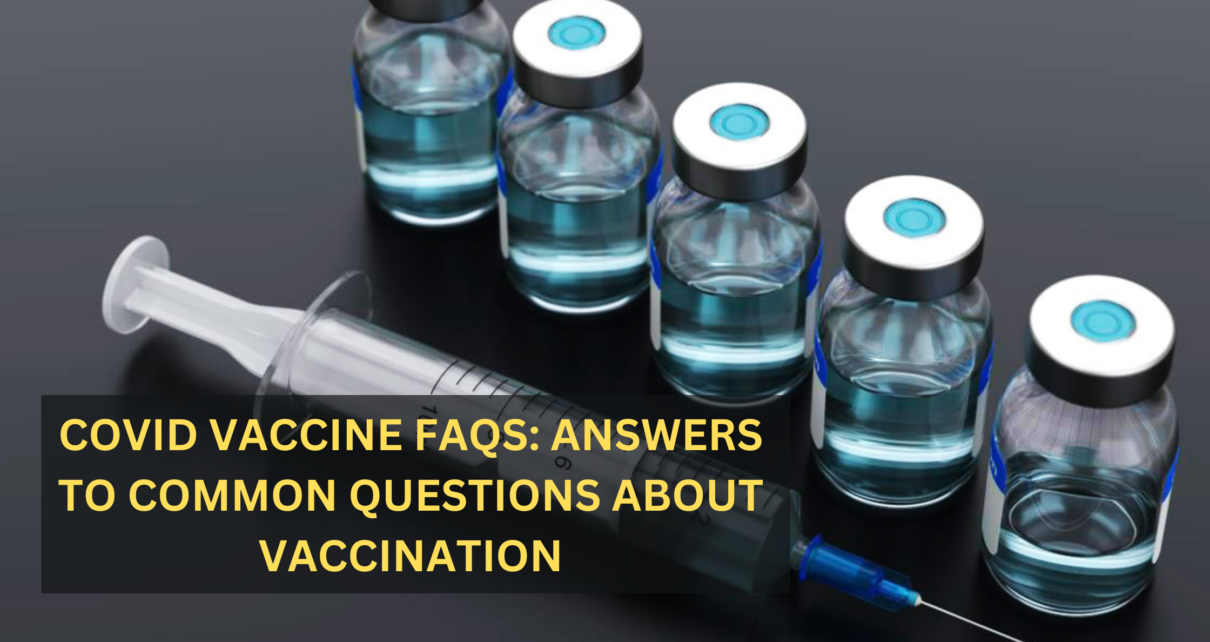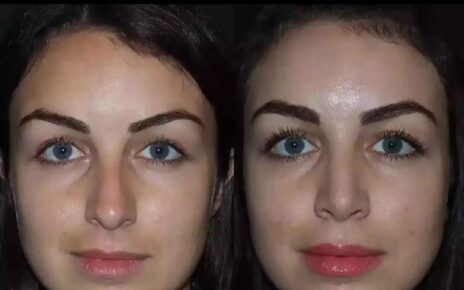As the COVID-19 pandemic spreads, vaccination is crucial in mitigating its impact on halting the virus’s spread. However, there are several questions and concerns surrounding COVID Vaccine FAQs. This article will address some of the most common covid vaccine FAQs (Frequently Asked Questions) related to COVID-19 vaccination. By providing accurate and up-to-date information, we aim to help you make informed decisions regarding your and your loved ones’ health.
1. What is the purpose of COVID-19 vaccines?
The primary purpose of COVID-19 vaccines is to stimulate an immune response in our bodies, preparing them to recognize and fight the SARS-CoV-2 virus, which causes COVID-19. Vaccines help reduce the severity of the illness, prevent hospitalization, and save lives. They also contribute to building herd immunity, essential for controlling the spread of the virus within communities.
2. Are COVID-19 vaccines safe?
Extensive research and rigorous testing have been conducted to ensure the safety of COVID-19 vaccines. Before approval, vaccines undergo clinical trials involving thousands of participants to assess their safety and efficacy. Regulatory authorities closely monitor the vaccine development process to ensure compliance with established standards. The authorized COVID-19 vaccines have met the required safety criteria and continue to be monitored for any potential adverse effects.
3. How do COVID-19 vaccines work?
COVID-19 vaccines present a harmless part of the SARS-CoV-2 virus (such as the spike protein) to our immune system. This exposure prompts our immune cells to recognize the virus and produce a response, including producing antibodies and memory cells. These immune responses prepare our bodies to fight off the virus if we are exposed to it in the future.
4. Who should get vaccinated?
As authorized by health authorities, COVID-19 vaccines are recommended for most individuals aged 12 years and older. Vaccination is essential for those at higher risk of severe illness or complications from COVID-19, such as older adults, individuals with underlying medical conditions, and frontline healthcare workers. It is essential to consult with healthcare professionals to determine eligibility and receive personalized recommendations.
5. What are the different types of COVID-19 vaccines?
Several types of COVID-19 vaccines have been authorized for emergency use worldwide. These include mRNA vaccines, viral vector vaccines, protein subunit vaccines, and inactivated or attenuated vaccines. Each vaccine type stimulates the immune system differently but ultimately aims to protect against COVID-19.
6. How effective are COVID-19 vaccines?
COVID-19 vaccines have demonstrated high efficacy in preventing severe illness, hospitalization, and death caused by the virus. The level of effectiveness may vary among different vaccines, but all authorized vaccines have shown significant efficacy in reducing the risk of COVID-19 infection and its severe consequences. It is important to note that no vaccine provides 100% protection, but they significantly reduce the likelihood of severe illness.
7. What are the common side effects of COVID-19 vaccines?
Common side effects of COVID-19 vaccines include tiredness, headache, bruising or edema where the injection was made, muscle pain, chills, fever, and nausea. These side effects are usually mild and temporary, resolving within a few days. They indicate that the body is building protection against the virus.
8. Can you get COVID-19 from the vaccine?
No, you cannot get COVID-19 from the COVID-19 vaccine. The authorized vaccines do not contain the live virus that causes COVID-19. Instead, they instruct our cells to produce a harmless piece of the virus, triggering an immune response. This response helps protect against future infections with the actual virus.
9. Do COVID-19 vaccines have long-term side effects?
Long-term side effects of COVID-19 vaccines are infrequent. The rigorous testing and monitoring procedures during vaccine development ensure that any potential side effects are identified and evaluated. The authorized vaccines have undergone thorough safety assessments and continue to be closely monitored for any long-term effects.
10. Are COVID-19 vaccines effective against new variants?
COVID-19 vaccines have shown effectiveness against many of the known variants of the SARS-CoV-2 virus. However, the efficacy may vary depending on the specific variant. Vaccine developers are actively monitoring new variants and conducting studies to assess the effectiveness of existing vaccines. It is crucial to continue monitoring and adapting vaccination strategies to address emerging variants.
11. Do I still need to wear a mask and practice social distancing after vaccination?
While COVID-19 vaccines significantly reduce the risk of severe illness, following public health guidelines is essential even after vaccination. Mask-wearing, social distancing, and hand hygiene continue to play a role in preventing the spread of the virus, particularly in areas with high transmission rates or new variants. Adhering to these measures and vaccination provides the best protection against COVID-19.
12. Can pregnant women and breastfeeding mothers get vaccinated?
Nursing moms and expectant women are urged to discuss COVID-19 vaccination with their healthcare providers. Based on available data, the authorized COVID-19 vaccines do not appear to pose specific risks for pregnant women or their babies. However, individual circumstances and potential risks should be considered in consultation with healthcare professionals.
13. Can children get vaccinated against COVID-19?
COVID-19 vaccines have been authorized for individuals aged 12 years and older in many countries. However, the availability of vaccines for younger children may vary depending on regulatory approvals and ongoing studies. It is important to follow local health guidelines and seek advice from healthcare professionals to determine the eligibility and recommendations for vaccination in children.
14. How long does immunity from COVID-19 vaccines last?
Research on the COVID-19 vaccine’s duration of protection is ongoing. as the vaccines are relatively new. Current evidence suggests that the vaccines protect against severe illness and hospitalization for at least several months. Booster doses may be recommended to enhance and prolong immunity, especially against new variants.
15. Where can I get vaccinated?
COVID-19 vaccines are available at various locations, including vaccination centers, healthcare facilities, pharmacies, and community clinics. Local health authorities provide information on vaccine availability, eligibility criteria, and appointment booking processes. By choosing the Wilmington health covid vaccine, you can have peace of mind knowing you are in capable hands.
Conclusion
COVID-19 vaccines play a vital role in combating the ongoing pandemic by reducing the transmission of the virus and protecting individuals from severe illness. By addressing common FAQs, we hope to have provided you with a better understanding of COVID-19 vaccines and their importance. Stay informed, follow public health guidelines, and consult collaborating with healthcare professionals to make decisions about vaccination.
FAQs (Frequently Asked Questions)
1. Can I get COVID-19 from the vaccine?
No, COVID-19 vaccines do not contain the live virus and cannot give you COVID-19.
2. Are COVID-19 vaccines safe for pregnant women?
COVID-19 vaccines have not shown specific risks for pregnant women, but it is advisable to consult healthcare providers for personalized recommendations.
3. Do I still need to wear a mask after vaccination?
Mask-wearing is still recommended, especially in high transmission areas or when directed by local health authorities.
4. Can children receive COVID-19 vaccines?
Covid-19 vaccines are authorized for individuals 12 years and older, and eligibility for younger children may vary.
5. How long does vaccine immunity last?
Research into how long the COVID-19 vaccinations’ immunity lasts is ongoing booster doses may be recommended in the future.




